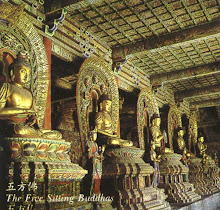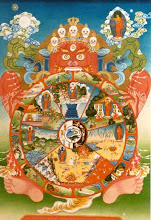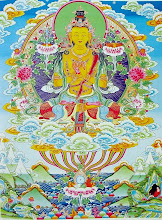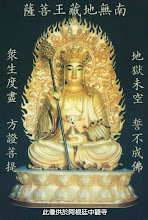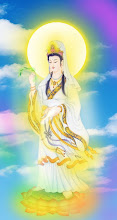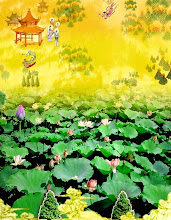There are many special or holy days held throughout the year by the Buddhist community. Many of these days celebrate the birthdays of Bodhisattvas in the Mahayana tradition or other significant dates in the Buddhist calendar. The most significant celebration happens every May on the night of the full moon, when Buddhist all over the world celebrate the birth, enlightenment and death of the Buddha over 2,500 years ago. It has become to be known as Buddha Day.
Buddhist Festivals are always joyful occasions. Typically on a festival day, lay people will go the the local temple or monastery and offer food to the monks and take the Five Precepts and listen to a Dharma talk. In the afternoon, they distribute food to the poor to make merit, and in the evening perhaps join in a ceremony of circumambulation of a stupa three times as a sign of respect to the Buddha, Dhamma, Sangha. The day will conclude with evening chanting of the Buddha's teachings and meditation.
* The Thai Buddhist Calendar (similar if not the same as the Laotian and Cambodian). Some holy days are specific to a particular Buddhist tradition or ethnic group (as above). There are two aspects to take into consideration regarding Buddhist festivals: Most Buddhists, with the exception of the Japanese, use the Lunar Calendar and the dates of Buddhist festivals vary from country to country and between Buddhist traditions. There are many Buddhist festivals, here are some of the more important ones:
Buddhist New Year
In Theravadin countries, Thailand, Burma, Sri Lanka, Cambodia and Laos, the new year is celebrated for three days from the first full moon day in April. In Mahayana countries the new year starts on the first full moon day in January. However, the Buddhist New Year depends on the country of origin or ethnic background of the people. As for example, Chinese, Koreans and Vietnamese celebrate late January or early February according to the lunar calendar, whilst the Tibetans usually celebrate about one month later.
Vesak or Visakah Puja ("Buddha Day")
Traditionally, Buddha's Birthday is known as Vesak or Visakah Puja (Buddha's Birthday Celebrations). Vesak is the major Buddhist festival of the year as it celebrates the birth, enlightenment and death of the Buddha on the one day, the first full moon day in May, except in a leap year when the festival is held in June. This celebration is called Vesak being the name of the month in the Indian calendar.
Sunday, April 25, 2010
Sunday, April 18, 2010
The Buddhist Concept of Impermanence
Early Buddhism dealt with the problem of impermanence in a very rationale manner. This concept is known as anicca in Buddhism, according to which, impermanence is an undeniable and inescapable fact of human existence from which nothing that belongs to this earth is ever free.
Buddhism declares that there are five processes on which no human being has control and which none can ever change. These five processes are namely, the process of growing old, of not falling sick, of dying, of decay of things that are perishable and of the passing away of that which is liable to pass. Buddhism however suggests that escape from these is possible and it's through Nirvana.
Hinduism also believes in the impermanent nature of life. But it deals with this problem differently. According to Hinduism, impermanence can be overcome by locating and uniting with the center of permanence that exists within oneself. This center is the Soul or the self that is immortal, permanent and ever stable.
According to Hinduism, Atman is the fundamental truth that exists in every being, while at the microcosmic level it is Brahman who is the fundamental and supreme truth of all existence. He who realizes Atman verily becomes Brahman and attains immortality.
The Buddha differed radically with this most fundamental concept of Hinduism and in line with his preaching the early Buddhists did not believe in the existence of a permanent and fixed reality which could be referred to as either God or soul. According to them what was apparent and verifiable about our existence was the continuous change it undergoes.
Buddhism declares that there are five processes on which no human being has control and which none can ever change. These five processes are namely, the process of growing old, of not falling sick, of dying, of decay of things that are perishable and of the passing away of that which is liable to pass. Buddhism however suggests that escape from these is possible and it's through Nirvana.
Hinduism also believes in the impermanent nature of life. But it deals with this problem differently. According to Hinduism, impermanence can be overcome by locating and uniting with the center of permanence that exists within oneself. This center is the Soul or the self that is immortal, permanent and ever stable.
According to Hinduism, Atman is the fundamental truth that exists in every being, while at the microcosmic level it is Brahman who is the fundamental and supreme truth of all existence. He who realizes Atman verily becomes Brahman and attains immortality.
The Buddha differed radically with this most fundamental concept of Hinduism and in line with his preaching the early Buddhists did not believe in the existence of a permanent and fixed reality which could be referred to as either God or soul. According to them what was apparent and verifiable about our existence was the continuous change it undergoes.
Thursday, April 8, 2010
The Five Precepts
Dr. Sunthorn Plamintr
The purpose of Buddhist moral precepts
There are three fundamental modes of training in Buddhist practice: morality, mental culture, and wisdom. The English word morality is used to translate the Pali term sila, although the Buddhist term contains its own particular connotations.
The word sila denotes a state of normalcy, a condition which is basically unqualified and unadulterated. When one practices sila, one returns to one's own basic goodness, the original state of normalcy, unperturbed and unmodified.
Killing a human being, for instance, is not basically human nature; if it were, human beings would have ceased to exist a long time ago. A person commits an act of killing because he or she is blinded by greed, rage or hatred.
Such negative qualities as anger, hatred, greed, ill will, and jealousy are factors that alter people's nature and make them into something other than their true self. To practice sila is thus to train in preserving one's true nature, not allowing it to be modified or overpowered by negative forces.
This definition points to the objective of Buddhist morality rather than to the practice itself, but it does give us an idea of the underlying philosophy behind the training, as well as how the Buddhist moral precepts should be followed. These precepts are a means to an end, they are observed for a specific objective.
The purpose of Buddhist moral precepts
There are three fundamental modes of training in Buddhist practice: morality, mental culture, and wisdom. The English word morality is used to translate the Pali term sila, although the Buddhist term contains its own particular connotations.
The word sila denotes a state of normalcy, a condition which is basically unqualified and unadulterated. When one practices sila, one returns to one's own basic goodness, the original state of normalcy, unperturbed and unmodified.
Killing a human being, for instance, is not basically human nature; if it were, human beings would have ceased to exist a long time ago. A person commits an act of killing because he or she is blinded by greed, rage or hatred.
Such negative qualities as anger, hatred, greed, ill will, and jealousy are factors that alter people's nature and make them into something other than their true self. To practice sila is thus to train in preserving one's true nature, not allowing it to be modified or overpowered by negative forces.
This definition points to the objective of Buddhist morality rather than to the practice itself, but it does give us an idea of the underlying philosophy behind the training, as well as how the Buddhist moral precepts should be followed. These precepts are a means to an end, they are observed for a specific objective.
Thursday, April 1, 2010
Mantra and Praise
1) The True Words of Seven Buddhas for Eradicating Offenses
"li pe li pe di chyou he chyou he di two la ni di ni he la di"
"pi li ni di mwo he chye di jen lin chyan di swo pe he" (3x)
[Shiddham Sound]
2) Spirit Mantra For Rebirth in the Pure Land
"na mwo e mi dwo pe ye dwo two chye dwo ye dwo di ye two"
"e mi li du pe pi e mi li dwo syi dan pe pi"
"e mi li dwo pi jya lan di e mi li dwo pi jya lan di"
"chye mi li chye chye nwo jr dwo jya li swo pe he" (3x)
[Shiddham Sound]
3) Mantra for Patching the Flaws in Recitation
"Na mo he la da na duo la ye ye qie la qie la ju zhu ju zhu"
"mo la mo la hu la hong he he su da na hong po mo nu suo po he" (3x)
[Shiddham Sound)
"li pe li pe di chyou he chyou he di two la ni di ni he la di"
"pi li ni di mwo he chye di jen lin chyan di swo pe he" (3x)
[Shiddham Sound]
2) Spirit Mantra For Rebirth in the Pure Land
"na mwo e mi dwo pe ye dwo two chye dwo ye dwo di ye two"
"e mi li du pe pi e mi li dwo syi dan pe pi"
"e mi li dwo pi jya lan di e mi li dwo pi jya lan di"
"chye mi li chye chye nwo jr dwo jya li swo pe he" (3x)
[Shiddham Sound]
3) Mantra for Patching the Flaws in Recitation
"Na mo he la da na duo la ye ye qie la qie la ju zhu ju zhu"
"mo la mo la hu la hong he he su da na hong po mo nu suo po he" (3x)
[Shiddham Sound)
Subscribe to:
Posts (Atom)



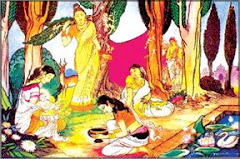
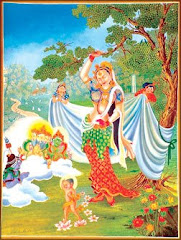
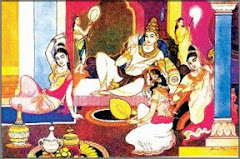

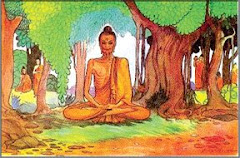



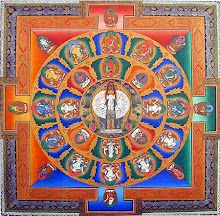
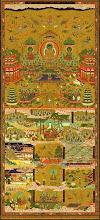
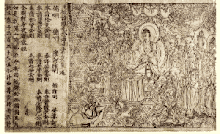
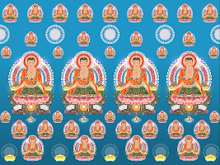

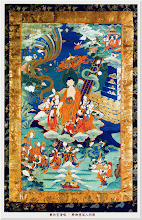

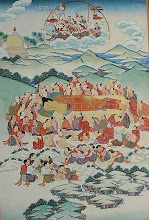


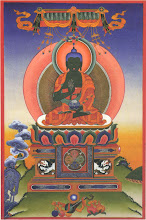




.jpg)

